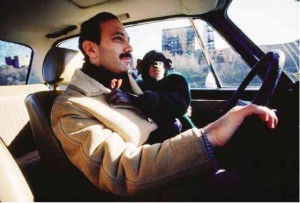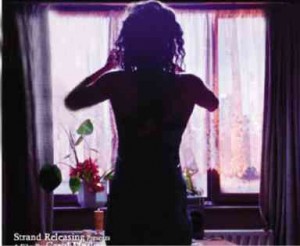European film fest comes to Manila, 5 other PH cities
Cineplexes are no longer the exclusive domain of Hollywood movies, thanks to the festivals mounted by various embassies and cultural institutions.
That film fests spearheadead by countries like Italy, Spain and France have built a solid following through the years is a testament to the organizers’ persistence and the cineplexes’ willingness to offer more varied fare.
From Sept. 5 to 15, the European Union Delegation to the Philippines will present Cine Europa, which has become one of the country’s biggest film gatherings, at the Shangri-La Plaza mall in Mandaluyong City.
“Our goal is to offer films that Filipinos wouldn’t otherwise get to see on the big screen,” explains Julian Vassallo, political counselor of the EU delegation to the Philippines.
There is, after all, more to cinema than Hollywood blockbusters. “Once Filipinos get to watch European films,” Vassallo says, they will surely start looking for more … It’s all about planting the seed in every viewer.”
Article continues after this advertisementFor the past 16 years, Cine Europa has assiduously cultivated its audience—which registered considerable growth in 2012.
Article continues after this advertisementClearly, a hunger
“In 2011, we had 29,000 viewers. Last year, we attracted 36,000. That’s a 24 percent increase,” Vassallo remarks. “Clearly, there is a hunger for non-Hollywood films.”
Last year, the fest added three cities to its itinerary. “We want to reach as many Filipinos as possible,” Vassallo explains. “This festival is not Manila-centric. We hope to expand to even more cities and provinces in the future.”
The provincial outreach program was made possible by the Film Development Council of the Philippines (FDCP), which started screening Cine Europa films in cinematheques in three key cities last year.
This year’s fest will be held in six cities:
After the 10-day run at the Shangri-La Plaza in Metro Manila, the fest will move to the cinematheque in Baguio from Sept. 17 to 22. The Iloilo Cinematheque will be the host from Sept. 23 to 29.
From Oct. 4 to 6, the fest will be held at the Ayala Center in Cebu and, from Oct. 10 to 13, at the Liceo de Cagayan University in Cagayan de Oro.
Cine Europa’s provincial tour will end at the cinematheque in Davao City from Oct. 15 to 20.
21 films
This year, Cine Europa will present 21 films from 17 countries: Austria, Belgium, Bulgaria, the Czech Republic, Denmark, France, Germany, Hungary, Italy, the Netherlands, Norway, Romania, Slovakia, Spain, Sweden, Switzerland and the United Kingdom.
Vassallo asserts that there is no common thread binding this year’s selection.
The lineup is as diverse as the region, he notes. “The EU has 28 member states. Each one has a distinct national cinema. Some movie industries may be bigger and older than the others. Some cater only to local audiences, while others have crossed borders.”
Needless to say, Cine Europa will show the breadth and width of the region. “It’s a mix of everything. There are award winners, film fest favorites and box-office hits.”
Denmark’s entry, Nikolaj Arcel’s “A Royal Affair,” was nominated for best foreign language film in this year’s Oscars. It also won best actor (Mikkel Boe Folsgaard) and best screenplay at the Berlin film fest last year.
Germany’s entry, Christian Petzold’s “Barbara,” won the Silver Bear at the Berlin fest in 2012 as well.
“This year, we’ve included documentaries from the United Kingdom,” says Vassalla. “We want to prove that docus can be engaging and appreciated by audiences.”
The two UK docus are widely acclaimed, too. James Marsh’s “Project Nim” won best director at the Sundance fest and best docu at the Boston Society of Film Critics Awards in 2011.
Carol Morley’s “Dreams of a Life” was nominated for various British film awards in 2012.
Organizers take pride in beefing up the festival’s educational component. The Cine Europa fest has partnered with the FDCP and the Philippine Independents Filmmakers’ Cooperative to hold lectures on Film Archiving (Sept. 8) and Filipino documentaries (Sept. 14) at the Shangri-La Plaza mall.
Screenings of restored classics— Manuel Conde’s “Genghis Khan” and Peque Gallaga’s “Oro, Plata, Mata”—will follow the round-table discussion on Sept. 8. Baby Ruth Villarama-Gutierrez’s docu “Jazz in Love,” opening film in this year’s Cinemalaya, will be screened after the Sept. 14 seminar.
“We plan to take the same lecture series to different colleges and universities, with our partner Antonin Laberge of Beleb,” says Vassalla.



